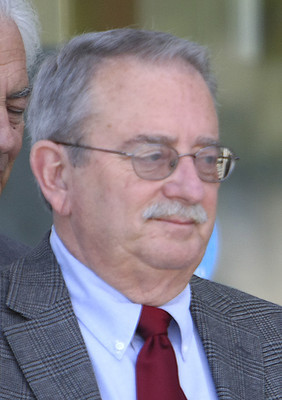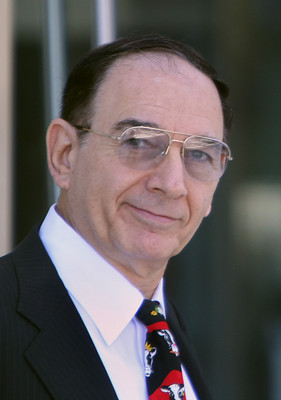Conspiracy cases now separated
A visiting U.S. district judge accused federal prosecutors Tuesday of acting secretively and engaging in a fishing expedition to dig up more evidence in their widespread conspiracy case involving Las Vegas doctors and lawyers.
"The government is playing its cards close to the vest," said U.S. District Judge Justin Quackenbush, who is based in the Northern California District. "I need to know more about this case."
Attorney Noel Gage and self-proclaimed medical consultant Howard Awand were scheduled to go to trial together on charges related to what prosecutors allege was a scheme that inflated medical costs and jacked up settlements.
Despite objections from the government, Quackenbush severed the two cases and granted Gage's request for a speedy trial, setting Gage's case for Feb. 19. Awand is not scheduled to go to trial until Oct. 29.
The U.S. attorney's office issued an indictment against Awand in March, charging him with recruiting a network of doctors who agreed to refer patients to him. In turn, Awand would refer patients to personal injury attorneys, including Gage.
According to the indictment, Awand and Gage would steer the clients to doctors who would recommend the patient pay for their services on a medical lien basis rather than using their medical insurance carrier, which would have set a limit on the cost of procedures.
The doctors then inflated the cost of the medical care, according to the government.
What patients were not told is that Awand secretly purchased the liens at a steep discount, the indictment says. The clients would be required to pay the full value of the liens and Awand pocketed the difference and paid the co-conspirators referral fees, according to the indictment.
The indictments revolve around two patients referred to Awand.
The first patient outlined in the indictment sought treatment for kidney stones in 2001 and ended up in a permanently vegetative state. A physician working with the man referred him to Awand, who then suggested he hire Gage to file a medical malpractice suit.
Between September 2001 and June 2003, Awand and Gage persuaded the patient's wife to sign medical liens, which are settled after a lawsuit is resolved.
When the man's lawsuit was settled, Gage paid Awand $347,654 for the medical liens that covered the inflated cost of the medical treatment, the indictment states. Awand had purchased the liens for $130,000, according to the indictment.
Gage's attorney, Tom Pitaro, told Quackenbush that medical liens were the only option after the patient's HMO refused to cover the cost of a special procedure.
"This is a man without insurance and the hospital would take him in only if he had up-front cash and liens," Pitaro said. "We believe that the treatment aided in saving his life. There is nothing nefarious about the lien process."
Buying medical liens is a risky but not unusual practice, he said.
Pitaro added that Gage sued the man's health insurance company for failing to pay for the treatment. The family was awarded $200,000, but Gage didn't keep any of the settlement money, Pitaro said.
The second case involves a schoolteacher who elected to undergo a spinal fusion in 2000. She was left paralyzed from the procedure.
The federal government contends Gage and Awand met with the physicians involved in the surgery. Together they agreed to blame the anesthesiologist and to shape their testimony to show it was the anesthesiologist's fault, the indictment says.
Acting U.S. Attorney Steve Myhre told Quackenbush that prosecutors have no intention to keep their case secret. Myhre said they are reluctant to disclose potential witnesses in open court because of concerns they might be threatened. The indictment against Awand accuses him of badgering a witness who testified in front of the grand jury.
Myhre said concerns about the well-being of witnesses is a primary reason he preferred to have one trial rather than sever the cases.
"If they are reluctant to testify once, it will be very difficult to get them to testify twice," Myhre said.
Quackenbush also denied the prosecution's request to again search Gage's legal office. Investigators raided the office in March, two months before the indictment was issued against Gage.
Quackenbush said he would allow the government to subpoena specific records, but going through Gage's files appeared to be a "fishing expedition" to search for additional evidence against the lawyer, Quackenbush said.


















